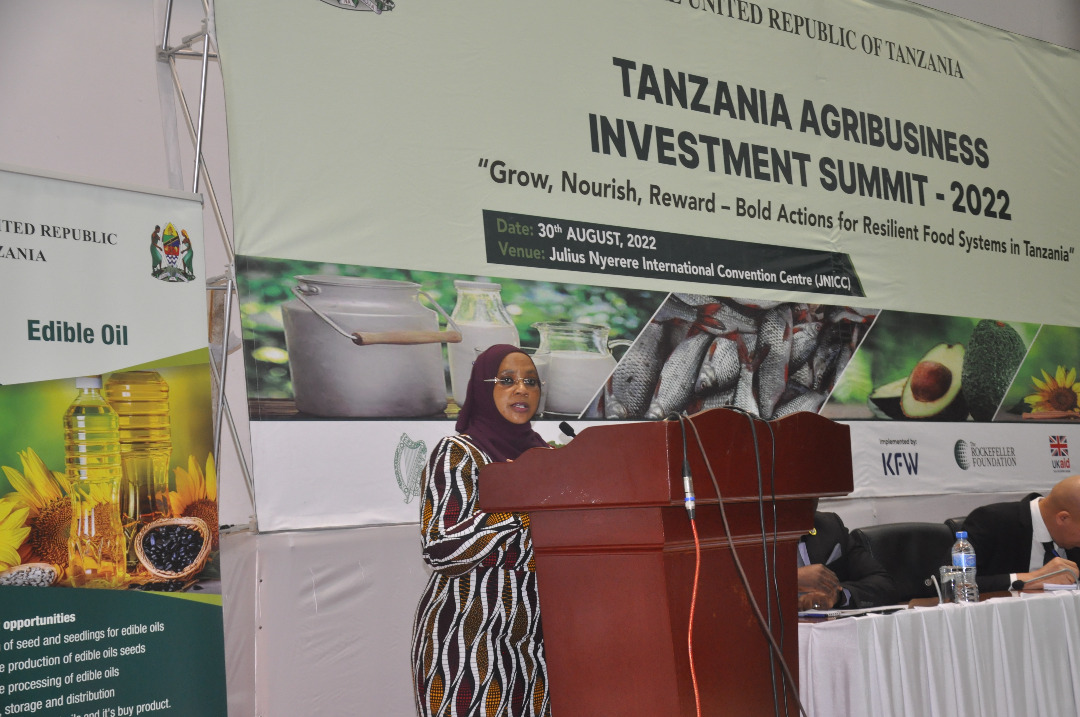Hon. Hussein Bashe Announces New Agricultural Trading Guidelines for Sesame, Pigeon Peas, Mung Beans, and Soybeans
KilimoKwanza.org
Taking to Twitter to engage directly with the public and stakeholders, Tanzania’s Minister of Agriculture, Hon. Hussein Bashe, unveiled new trading guidelines for sesame, pigeon peas, mung beans, and soybeans on May 07, 2024. This initiative is part of the government’s ongoing efforts to enhance efficiency and competitiveness in the agricultural sector.
The announcement detailed adopting an electronic auction system through the Tanzania Mercantile Exchange (TMX), designed to promote transparency and ensure that farmers receive fair crop compensation.
These guidelines stipulate that all traded crops must be issued phytosanitary certificates affirming their cleanliness and safety. This measure aims to safeguard consumer health and uphold the quality standards of Tanzanian agricultural exports.
Sesame, Pigeon Peas, Mung Beans, and Soybeans
Sesame Seeds Sesame seeds are one of Tanzania’s most important cash crops and a significant export commodity. They are primarily grown in the central and southern regions of the country where the climate is well-suited for their cultivation. Sesame from Tanzania is prized on international markets for its quality, and the crop plays a vital role in the livelihoods of smallholder farmers. The government’s efforts to introduce better farming techniques and market strategies have boosted the sector’s productivity and profitability.
Pigeon Peas
Pigeon peas are another crucial crop for many Tanzanian farmers, particularly in semi-arid areas, due to their drought-resistant nature. This legume is both a subsistence and cash crop, consumed locally and increasingly exported, especially to high-demand markets in Asia. Pigeon peas contribute to food security and are used in crop rotation practices to improve soil fertility.
Mung Beans
Mung beans are relatively new to the Tanzanian agricultural scene but have quickly become an important part of the agricultural diversification strategy. Known for their short growing cycle and suitability to various climates, mung beans are an excellent crop for smallholder farmers looking to increase their income. They are primarily consumed domestically, but a growing portion is being exported as demand in international markets increases.
Soybeans
Soybeans in Tanzania are cultivated mainly for their nutritional value and potential industrial uses in food processing. The crop is gaining popularity due to its protein-rich composition, making it an essential component of dietary supplementation in food aid programs. Additionally, soybeans are used in animal feed, which supports the livestock industry. The government and various NGOs are promoting soybean cultivation to enhance nutritional security and explore export possibilities.
Impact and Future Prospects These crops collectively represent a crucial component of Tanzania’s agricultural strategy aimed at economic diversification and increased export revenues. With ongoing government initiatives and international cooperation, these crops are set to maintain and possibly increase their standing in both local and global markets. Investing in research and development, improving infrastructure, and enhancing farmers’ access to markets are key to the future growth of these crops in Tanzania.


